Bookshelf: Spring 2012
People of the Big Voice: Photographs of Ho-Chunk Families by Charles Van Schaick, 1879–1942 (Wisconsin Historical Society Press) allows readers to learn more about tribal history by looking through the camera lens of Black River Falls, Wisconsin, photographer Charles Van Schaick. Among the work’s authors are Tom Jones II ’88, a UW assistant professor of photography and an enrolled member of the Ho-Chunk Nation whose work appears in the National Museum of the American Indian; and Matthew Daniel Mason MA’03, an archivist at the Beinecke Rare Book and Manuscript Library at Yale University in New Haven, Connecticut. People of the Big Voice recently earned a USA “Best Books 2011” Award from USABookNews.com.
To research his sixth historical novel, 1776: Washington’s First Victory (Rosedog Books), E.H. (Ed) Haines ’57 of Fort Myers, Florida, visited all of the pertinent sites. His work tells the story of how George Washington and Henry Knox managed to move artillery from Fort Ticonderoga to Boston and force the British fleet to withdraw from the harbor and the city.
 The “meticulous dissection” of the steps that will allow basketball players to shoot more accurately and consistently in their jump shots are outlined in Ralph Karst MS’59, PhD’79’s Developing the Perfect Jump Shot (Coaches Choice). Karst began to formulate his theory of an aiming zone for jump shooting at the UW’s Red Gym in 1963 through “synthesizing aesthetic and bio-mechanical functions into a unified whole.”
The “meticulous dissection” of the steps that will allow basketball players to shoot more accurately and consistently in their jump shots are outlined in Ralph Karst MS’59, PhD’79’s Developing the Perfect Jump Shot (Coaches Choice). Karst began to formulate his theory of an aiming zone for jump shooting at the UW’s Red Gym in 1963 through “synthesizing aesthetic and bio-mechanical functions into a unified whole.”
Grinnell [Iowa] College assistant professor of English Dean (Constantine) Bakopoulos MFA’04 has published his second novel, My American Unhappiness (Houghton Mifflin Harcourt), in which the narrator researches the many ways in which Americans are unhappy. Bakopoulos is a former director of the Wisconsin Humanities Council and the Wisconsin Book Festival.
Losing It (Yale University Press) is William Ian Miller ’69’s “nice combination of acerbic wit and erudition,” according to Kirkus Reviews. In it, he consults the wisdom of the ages — and sages — to consider what it means to grow old gracefully and how we’ll know if we’ve lingered too long. While we’re on the road to the inevitable, Miller offers plenty of darkly intelligent humor to entertain and enlighten. The author, a professor of law at Michigan Law School in Ann Arbor, has also written The Anatomy of Disgust.
 One reviewer of European Local-Color Literature: National Tales, Dorfgeschichten, Romans Champêtres (Continuum) concludes that it “provocatively suggests that the challenges of nineteenth-century Europe are today’s challenges” — something interesting to ponder, given the angst of modern times in Europe and elsewhere. The book is the work of Josephine Donovan MA’67, PhD’71, a University of Maine professor emerita of English who lives in Portsmouth, New Hampshire.
One reviewer of European Local-Color Literature: National Tales, Dorfgeschichten, Romans Champêtres (Continuum) concludes that it “provocatively suggests that the challenges of nineteenth-century Europe are today’s challenges” — something interesting to ponder, given the angst of modern times in Europe and elsewhere. The book is the work of Josephine Donovan MA’67, PhD’71, a University of Maine professor emerita of English who lives in Portsmouth, New Hampshire.
Biographer Margot McCullough Peters ’61, MA’65, PhD’69 of Lake Mills, Wisconsin, has penned the first full chronicle of a poet whose life and work were largely unknown until after her death inLorine Niedecker: A Poet’s Life (University of Wisconsin Press). Niedecker grew up on Blackhawk Island near Fort Atkinson, Wisconsin, but her “literary lifeline” to distant ideas and people was her complicated, long-time friendship with the modernist poet Louis Zukofsky.
The wit of New Yorker Sally Platkin Koslow ’70 shone through in her message that Target has selected the paperback version of her latest novel, With Friends Like These (Ballantine Books), to be featured in the “emerging writers” section: “Nice to emerge after all these years,” she says wryly. Koslow held top posts at women’s magazines — most recently as the editor-in-chief of McCall’s and Lifetime — for more than thirty years and teaches at the Writing Institute of Sarah Lawrence College.
Funny, poignant, witty, heart-warming — all describe the well-told stories surrounding the phenomenon of raising backyard chickens that make up Cluck: From Jungle Fowl to City Chicks (Itchy Cat Press). Susan Troller (Cosgrove) ’74 of New Glarus, Wisconsin, is the main author, while S.V. (Sue) Medaris MA’10, MFA’11 of Mount Horeb, Wisconsin, created the truly-suitable-for-framing artwork.
Soul Searching: Black-Themed Cinema from the March on Washington to the Rise of Blaxploitation (Wesleyan University Press) examines the ’60s: a period that was vitally important for both African-American civil-rights activism and the U.S. film industry. It’s the work of Christopher Sieving MA’96, PhD’04, an assistant professor in the Department of Theatre and Film Studies at the University of Georgia in Athens.
Seeking to turn his job losses into inspiration and to provide a springboard for reprioritization, former Badger basketball player Andrew Kilbride ’98 made sure that his latest termination, in 2009, was his last: he rediscovered his passion; founded an Ann Arbor, Michigan-based consulting firm called Foster Bridge Partners; and wrote A Man’s Guide to Getting Fired (CreateSpace).
Dire sums up what’s coming for the global economy, predict brothers (John) David MS’78, PhD’89 and Robert MS’88 Wiedemer, but they’re planning ahead rather than sitting idly by. You can read their advice in Aftershock: Protect Yourself and Profit in the Next Global Financial Meltdown, Second Edition (John Wiley & Sons). David is chief economist for Absolute Investment Management in Bethesda, Maryland, while Robert is its managing director.
(Laura) Stacy Alaimo MA’86’s book, Bodily Natures: Science, Environment, and the Material Self (Indiana University Press), has earned the Book Award for Ecocriticism in 2011 from the Association for the Study of Literature and Environment. Alaimo is a professor of English at the University of Texas-Arlington.
Having “been there, experienced that,” the balancing act between career and parenthood became the center of Wendy Shavell Levitt ’90’s new work, At the Corner of Wall and Sesame (CreateSpace). “It is my hope,” writes the author, “that [the book] will prompt discussions that will lead to a paradigm shift in the way major corporations look at work/life balance. Our future generations need strong parenting, and our corporations need strong leaders; the current structure compromises both.” Levitt, of Woodbury, New York, also notes that “it’s no coincidence that the baby in [the book] is named Madison.”
Friends Like Us: A Novel (Alfred A. Knopf) is smart, funny, and honest — a look at the way that best friends love each other and sometimes break each other’s hearts. The author is Milwaukeean Lauren Fox ’91, who’s also written Still Life with Husband, and whose work has appeared in the New York Times, Marie Claire, Seventeen, Glamour, and Salon.
How many times do you wonder about some aspect of science and think, “I really ought to know that … but I don’t”? Well, help has arrived in the form of Ask Your Science Teacher: Answers to Everyday Questions (CreateSpace), by Larry Scheckel MS’92, who says that his 409-page book is “an insightful look at the world we live in.” Trust him: he’s a highly decorated educator, writer, and presenter who taught science for thirty-nine years at Tomah (Wisconsin) High School.
Martin Woodside ’95 of Philadelphia writes that as a former English major, he’s “putting that humanities degree to good work”: Calypso Editions has recently published his anthology of Romanian poetry in translation, Of Gentle Wolves. He spent 2009–10 on a Fulbright scholarship in Romania and is currently pursuing a PhD in childhood studies at Rutgers-Camden (New Jersey).
UW-Stevens Point professor emeritus of wildlife Neil Payne ’61 has documented the successes, frustrations, dangers, and humor of early wildlife researchers and managers in his fifth book about wild things, Wildlife Delights and Dilemmas: Newfoundland and Labrador (DRC Publishing). He was the province’s first furbearer biologist. Payne has residences in Plover, Wisconsin, and Davenport, Florida.
Experiences with confidential sources from his reporting days at Madison’s Capital Times and Isthmus newspapers created a basis for Jason Shepard ’99, MA’06, PhD’09’s new book, Privileging the Press: Confidential Sources, Journalism Ethics, and the First Amendment (LFB Scholarly Publishers). The former UW senior-class president now teaches journalism and media law as an assistant professor at California State University-Fullerton.
Pornography: an agent of female oppression, or an essential element of sexual liberation? Carolyn Bronstein PhD’01 explores this division of opinion within the women’s movement in Battling Pornography: The American Feminist Anti-Pornography Movement, 1976–1986 (Cambridge University Press). She’s an associate professor of communication at Chicago’s DePaul University.
As Badger State residents left farms and moved to towns and cities, their interests shifted from agriculture as a way of life to gardening as leisure and as a source of civic pride. Vintage Wisconsin Gardens: A History of Home Gardening (Wisconsin Historical Society Press) by (Elisabeth) Lee Somerville MA’08 introduces readers to the gardeners and gardens of the nineteenth and early twentieth centuries, and serves as a primer for those who want to recreate them. The Sturgeon Bay, Wisconsin, author is a landscape historian and master gardener.
School Food Politics: The Complex Ecology of Hunger and Feeding in Schools around the World (Peter Lang Publishing) comprises the work of five UW grads and is co-edited by Sarah Robert PhD’08, an assistant professor at the University of Buffalo (New York). From obesity worries and junk-food debates to food crises and global hunger, Robert looks at the issues related to where food originates, what kids eat, and why these practices are the way they are.
“Your publication is the main way that our toddler knows Bucky [Badger] by sight,” writes William Murphy MS’88, PhD’95 from “the hinterlands of Saskatoon,” where he’s an associate professor of marketing at the University of Saskatchewan. He’s also the author of Doing Good Work Matters! A 21st Century Guide for Getting More out of Your Job and More out of Your Life (Tate Publishing).
Published in the Spring 2012 issue
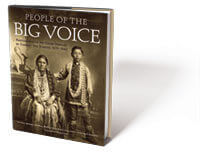
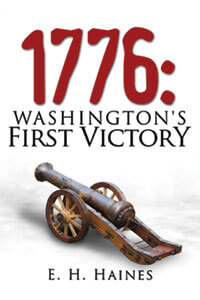
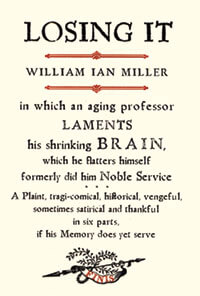
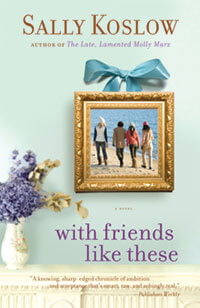
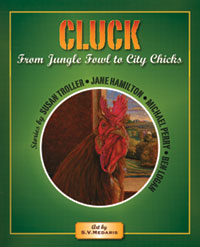
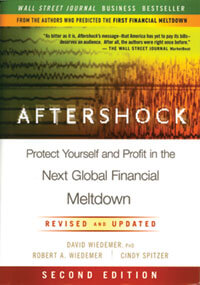
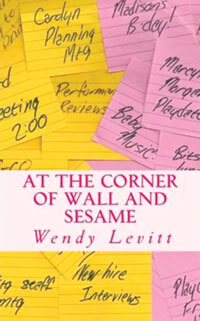
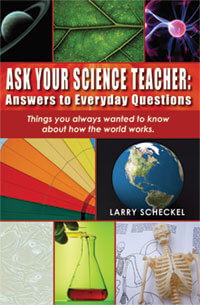
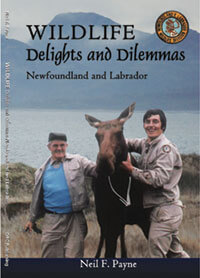
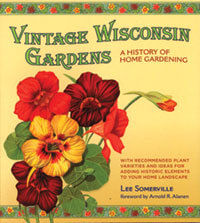
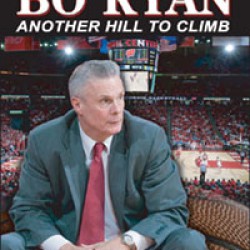


Comments
No comments posted yet.